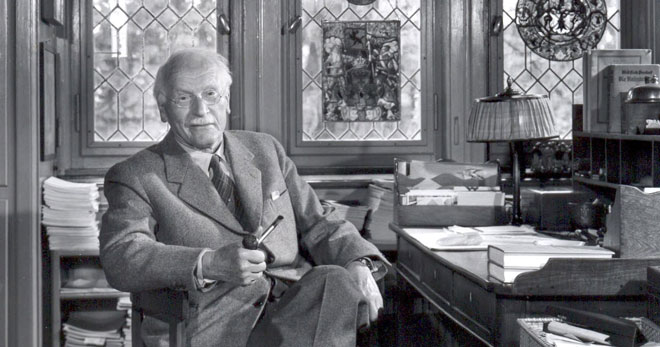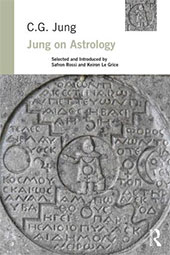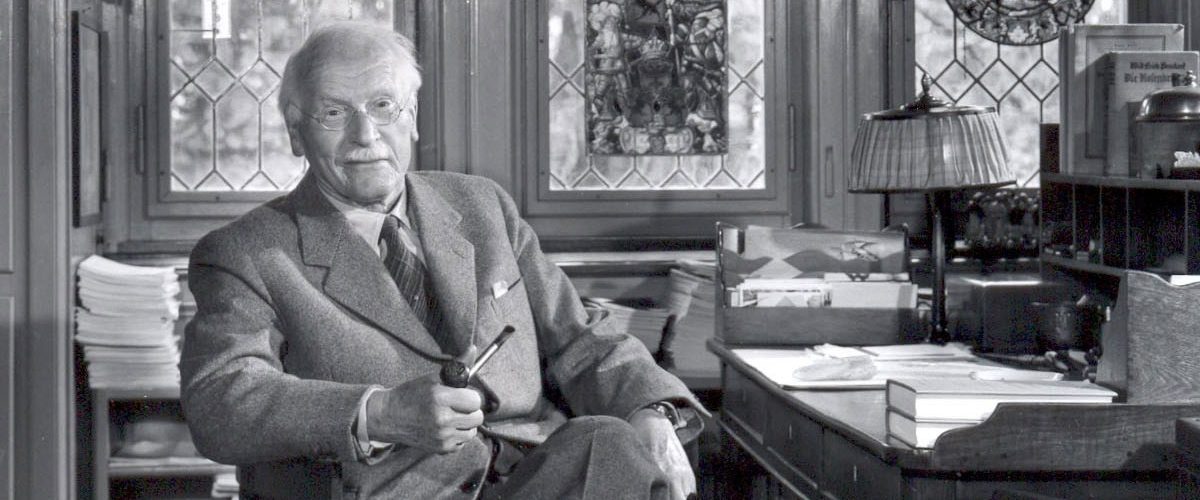
In episode 141 of the podcast Dr. Safron Rossi joins the show to talk about the life and work of the Swiss psychiatrist Carl Gustav Jung, and in particular his views on astrology.
Safron recently co-authored a book with Keiron Le Grice titled Jung on Astrology, which explores Jung’s thoughts on astrology by providing excepts from his collected works where he talked about the subject. You can read the full introduction on the Astrodienst website.
 We begin the discussion by talking about some notable concepts that Jung contributed to the field of psychology, before moving on to a discussion about the important role that he played in influencing modern conceptualizations of astrology in the 20th and 21st century.
We begin the discussion by talking about some notable concepts that Jung contributed to the field of psychology, before moving on to a discussion about the important role that he played in influencing modern conceptualizations of astrology in the 20th and 21st century.
Safron is a professor at Pacifica Graduate Institute in the Jungian and Archetypal Studies MA/PhD program, and she also writes and lectures on astrology. You can find more information about her work on her website at TheArchetypalEye.com.
Below you will find an outline of some of the major points we touched on in the discussion, followed by links to download or stream the recording of this episode of the podcast.
Outline
- Introducing Safron and talking about her background.
- How did the book Jung on Astrology come about?
- Talking about the scope and purpose of the book.
- Discussing the life and work of Jung.
- Who was Jung?
- Carl Gustav Jung was a Swiss psychiatrist (1875-1961).
- Early in his career he was a colleague of Freud’s.
- Interest in esoteric ideas and subjects.
- What did he do, and why is his work significant?
- Mythological or archetypal dimension of the psyche called the collective unconscious.
- Archetypes
- Complexes
- Individuation
- Interpretation of symbolism
- Melding of wisdom of past with modern psychological understanding
- What did he think about astrology?
- It is a symbolic language of archetypes, the formative principles and patterns in the depths of the unconscious
- Ancient psychology.
- “Astrology was the first form of psychology…”
- What was his influence on the astrological tradition?
- Psychological astrology draws on some of the main Jungian principles in three main ways:
- Psychological interpretation of astrological factors (rather than causal/concrete)
- Psychological types and zodiacal elements
- Emphasis on psychological development (rather than prediction)
- Birth chart as symbolic of an individual’s character on a deep, potential level.
- Transits as a process of development, maturing and opening to one’s potential – divine clock
- Theoretical assumptions behind astrology
- Archetypal basis of reality
- Synchronicity – acausal connections. Acausal correspondence.
- Reflection, clock on the wall
- Psychological interpretation of astrological factors (rather than causal/concrete)
- Importance of symbolic understanding
- Mythological and cosmological meaning
- Psychological astrology draws on some of the main Jungian principles in three main ways:
Transcript
A full transcript of this episode is available: Episode 141 transcript
Listen to This Episode
You can either play this episode of the podcast directly from the website or download it as an MP3 to your computer by using the buttons below:
Podcast: Play in new window | Download (Duration: 2:25:52 — 67.1MB)


How ’bout a Renaissance Man and Scholar? Jung to me is a psychoanalyst whose vast knowledge and expertise informed his practice as such. If psychology had not come first the astrology would not have stood alone for him it seems. One might ask – would he have been known at all if he had been an astrologer? When I was young the curriculum approach to integrated studies was brand new. (the early 70’s) I see Jung as an integrated studies scholar. I studied him at age 14 because I loved the idea of dream interpretation for example, not knowing he was an astrologer until years later. Great podcast – can’t wait to see Liz Greene’s latest work.
This podcast reminds me of the split in western assumptions of what knowledge is as exemplified by Plato and Aristotle. I sense a parallel dissonance still existing between Daoism and Confucianism in Chinese philosophy
Leaving technical and doctrinal issues aside, I think Jung’s contribution to the post-Enlightenment triumph of Reason was to remind Western minds that measuring and hence privileging concrete ‘reality’ may not ultimately represent what is known or experienced of ‘reality’ in all its richness.
A most thought-provoking podcast. Thanks
The only podcast to ever “out” Carl Jung as an astrologer. Really thoughtful show. Would love to hear a similar program on Synchronicity.
Can’t wait to crack into the new books mentioned. I wish there was a deep dive into Jung’s types. Greene’s Relating displays truly consciousness-bending profundity and elucidation of how Jung’s types differ from MBTI and how we could possibly conceptualize it into astrological terms.
Trust me, that sentence isn’t doing my thoughts on the subject justice–precisely why it deserves a deep dive. Alack.
I find great value in fleshing out a fuller understanding of Jung/MBTI types and astrology, as it seems to be a great hook for educating the astrology ignorant.
Chris,
Jung wrote in academic german. Do you know if he was the translator of his works, and if not who?
Wonderful podcast and am diving into the book now where the question arose.
amelia bare
On Wikipedia it says that his collected works were “edited and translated from the original German by Gerhard Adler and R.F.C. Hull, occasionally with assistance from others.”
What an excellent episode! The new looks / books at Jung’s relationship with astrology are fascinating. One unmentioned (if I recall correctly) part of the Freud – Jung story is that they made one journey together, across the Atlantic to America, around the time that they parted ways. I seem to recall that Jung made it official on the voyage back. Since the extended experience of crossing an ocean on its surface is apt to be such a profound one (and likely rich with dreams), this would be most interesting to read about. I suppose that this was also the trip on which Jung investigated the spiritual practices of — the Hopi? I don’t know whether Freud went along on that quest — I suspect not.
[…] is the author of the recent book Jung on Astrology, which was discussed in episode 141 with his co-author Saffron Rossi, as well as the book The Archetypal […]
What a great discussion, this is one of my favorite episodes. Dr. Rossi is a wonderful speaker and great listener so the time really flew.
This book is an important step forward for astrology and I applaud the great job you both did. I’m in the middle of the book right now and am enjoying it immensely. I’m looking forward to more shows on this topic. Thanks!